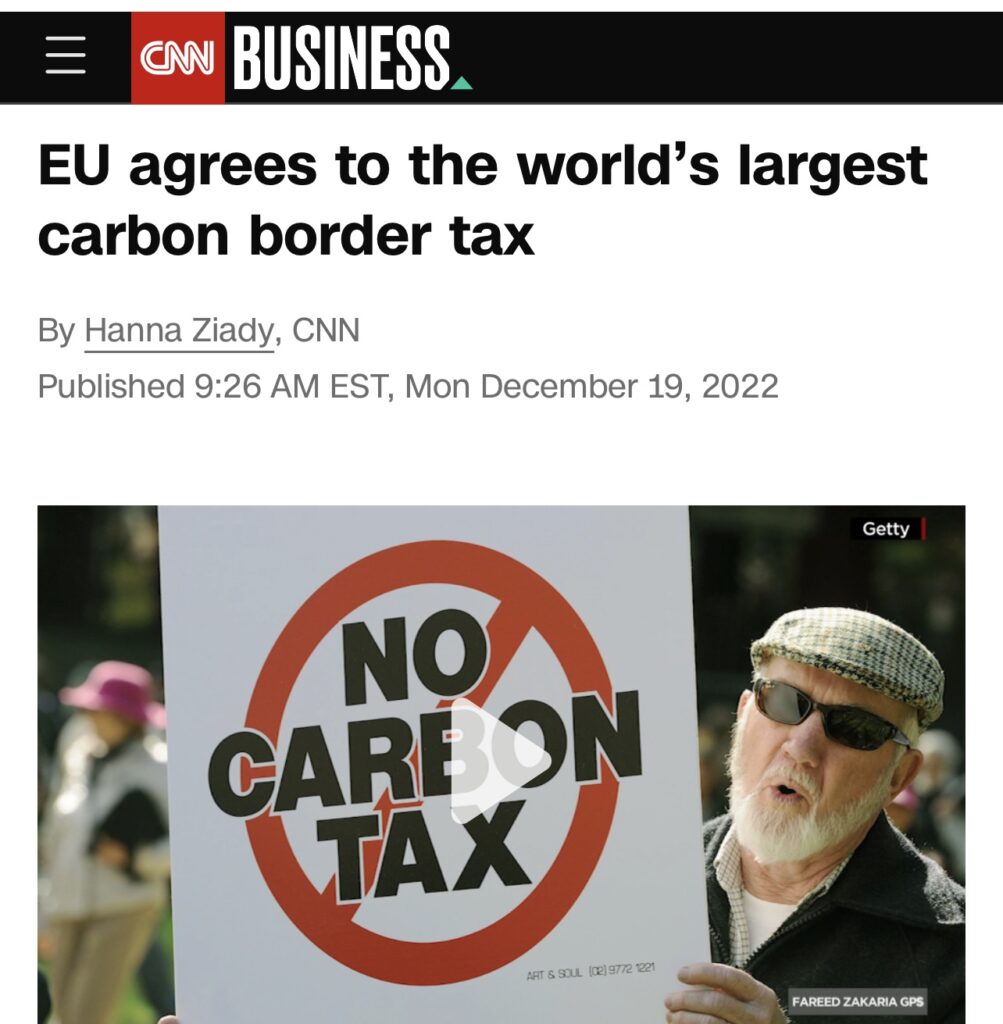EU carbon border tax raises trade questions
The EU has agreed what will be the world’s first carbon border tax, but questions have been raised about whether it could lead to a breach of World Trade Organization (WTO) rules.

The Carbon Border Adjustment Mechanism (CBAM) means that companies in the EU that import goods produced outside the EU will have to buy CBAM certificates to cover the emissions generated in the production of those goods. It is intended to stop “carbon leakage”, where firms in the EU meet emissions rules by shifting production to countries outside the EU with less strict environmental regulations.
The EU’s trading partners have labelled the CBAM protectionist. And the CBAM could break WTO rules if it runs alongside current EU emissions trading systems (ETS) rules, which give EU companies in some sectors with hard-to-abate emissions a number of free ETS allowances. “Keeping free emissions allowances for European products, while also requiring the purchase of CBAM certificates for like imported products, would unquestionably be a violation of the [WTO] national treatment rule,” says think tank the Cato Institute. “In effect, it would provide double protection for the European products.”
The free allowances are due to be phased out between 2026 and 2034, but EU industry representatives say this will cripple certain sectors and pose particular challenges for exports
The CBAM will initially cover a number of specific products in some of the most carbon-intensive sectors: iron and steel, cement, fertilizers, aluminium, electricity and hydrogen, as well as some precursors and a limited number of downstream products.
Source: WEF
You must be logged in to post a comment.